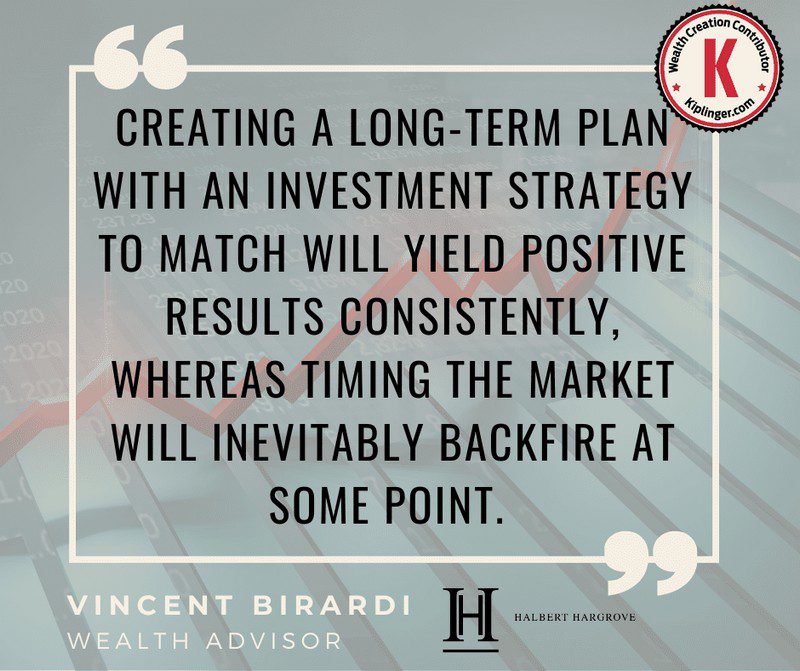By Vincent R. Birardi, CFP®, AIF®, Wealth Advisor as featured in Kiplinger
Some of these missteps might be a given when you’re starting out. A financial adviser offers tips on how to stay on track for years to come.
As a financial adviser, I have helped hundreds of clients with their finances over the course of my career. Clients come in with concerns often having already made a misstep or two, but I’ve observed some common investing mistakes that can easily be avoided.
1. Not Having an Adequate Emergency Savings Account.
You may be wondering, What does an emergency fund have to do with investing? Well, if you were to encounter a significant and unexpected expense, for example a hospital stay or home damage, not having at least the sum of three to six months of your average monthly household expenses saved in cash will likely require you to either take on very expensive credit card debt or require you to withdraw funds from your investment accounts.
Doing the latter can trigger significant taxes and penalties and make a major dent in your quest to achieve future investment goals.
2. Not Investing Enough for the Future in Your 20s and 30s.
It can be challenging to save and invest sufficiently in the early years of your career. Housing, student debt and having a lower salary can result in having less funds available to save within an IRA and/or a 401(k). However, through some nifty expense management and investing in your skills (i.e., your human capital), you can actually sock away meaningful amounts each year.
In doing so, you can harness the power of compounding. This is the ability of an asset to generate earnings which, when reinvested or kept invested in the primary asset, will generate additional earnings.
3. Not Increasing Your Maximum Retirement Contributions Over Time.
With fairly common regularity, the IRS will increase the maximum amounts that can be invested within retirement investment accounts. In fact, said limits were recently increased starting in 2023(opens in new tab). Beginning next year, the amount an individual can contribute to a 401(k), 403(b) and most 457 plans increases to $22,500, up from $20,500 in 2022.
IRA contributions can top out at $6,500, an increase of $500 from the current $6,000 annual limit.
Not remembering to adjust your annual contribution amounts to take advantage of these increases means that you’re losing out on the chance to sock away even greater amounts to compound over time.


